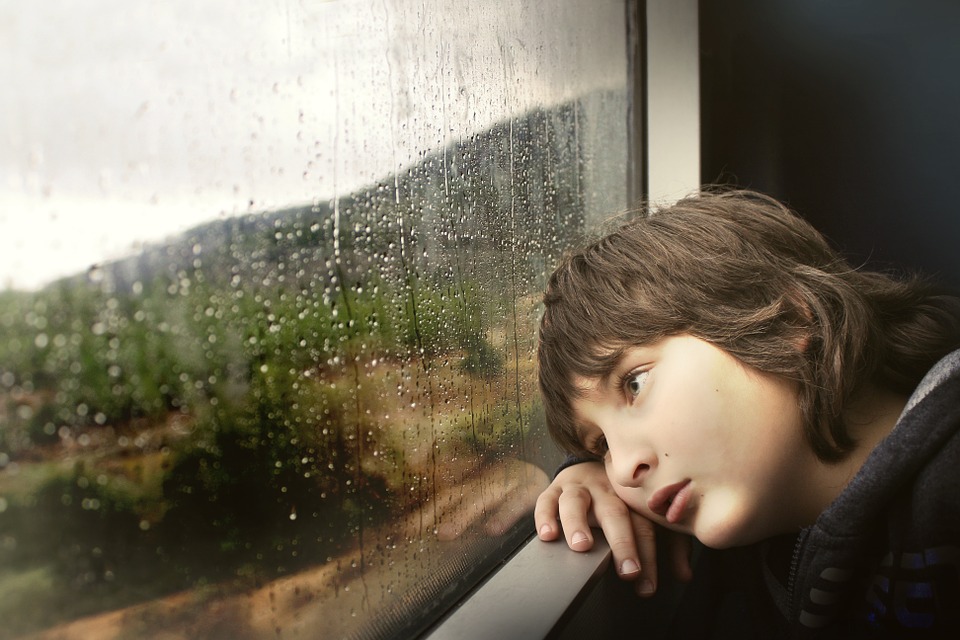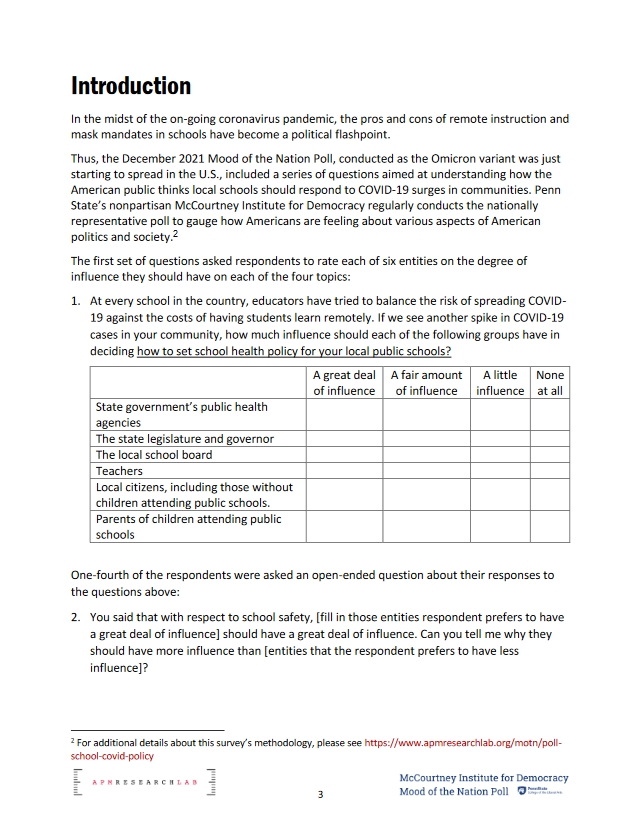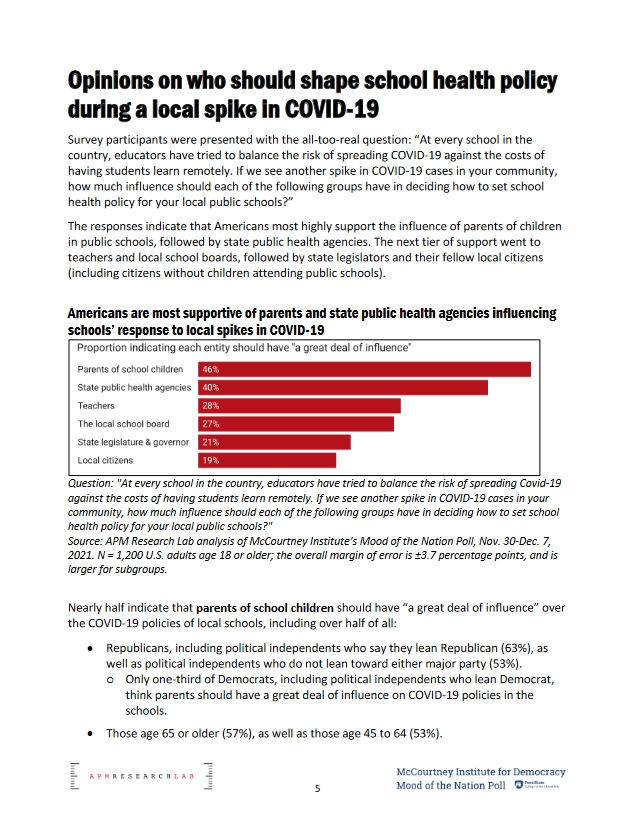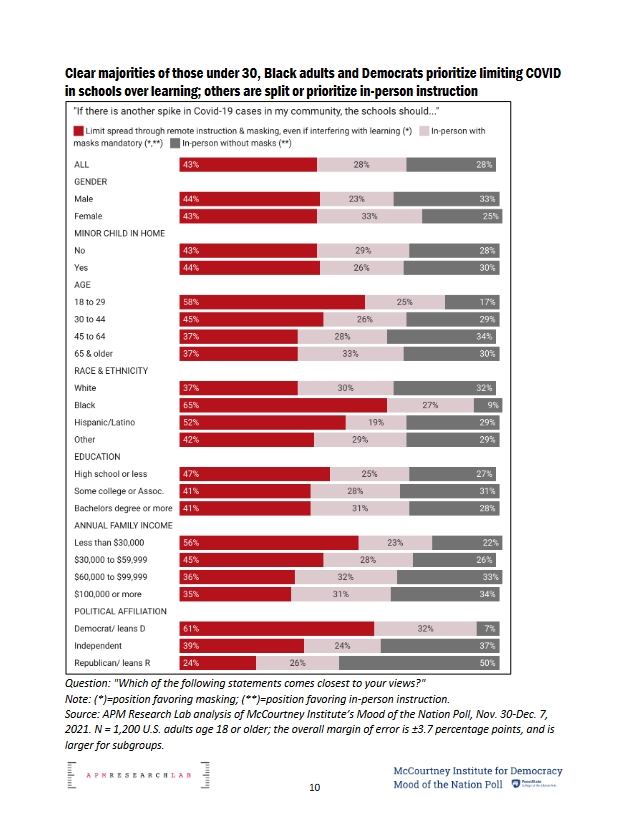43% Of Americans Want Schools Closed During COVID Spikes, According To New Poll
A new poll, called the Mood of the Nation, was taken in December 2021, and wanted to know a few things. One item it was curious about was who do you feel should influence COVID policies as to whether schools should be open or not. Pollsters, who in this case totaled 1,200, were given choices such as state government’s public health agencies, state legislature and governor, local school board, teachers, local citizens to include those without children in public schools, and parents of children attending public schools.

A new poll, called the Mood of the Nation, was taken in December 2021, and wanted to know a few things. One item it was curious about was who do you feel should influence COVID policies as to whether schools should be open or not. Pollsters, who in this case totaled 1,200, were given choices such as state government’s public health agencies, state legislature and governor, local school board, teachers, local citizens to include those without children in public schools, and parents of children attending public schools.

The poll results surrounding this question should not come as a surprise. In the portion where you could check “a great deal of influence,” parents of children attending public schools received 46% of the vote. Not too far behind it, with 40% of the vote, was the state government’s public health agencies. Rounding out the others were teachers (28%), local school board (27%), state legislature and governor (21%), and finally local citizens (19%).

Another item the Mood of the Nation poll was keen on discussing was where you stood in terms of keeping schools open when COVID begins to spike. With the omicron variant now in play, as well as the newest omicron variant, BA.2, we now find ourselves dealing with a COVID spike. So, what are we to do? Do we keep schools open? Do we shut schools down again and go back to remote learning full time? The poll wanted to know, and you wanted to offer your opinion.
The question put forth was simple as it pertained to keeping schools open or not. “If there is another spike in COVID-19 cases in my community, the schools should…” From there, three options were given. (1)…take steps to limit the spread of the disease such as remote instruction and masking, even if these steps interfere with student’s learning; (2)…continue to offer in-person instruction, but with mandatory masking, even if some students might get sick; and (3)…continue to offer in-person instruction without masking, even if some students might get sick.
The results to this question were interesting. In total, 43% of those polled felt that taking steps to limit the spread of disease would be in the best interest of the children, even if it meant going back to remote learning. 28% of the polled feel that schools should remain open during a COVID spike, but masks should be mandatory for children. Another 28% also favored keeping schools open, but they felt that masks are not necessary for kids. So, while 43% favor closing down schools, a total of 56% favor keeping schools open, though they are split right down the middle on if kids should or shouldn’t be wearing masks.

Mind you, this is but a small sample size of thought and opinion. Many studies have shown the detrimental effect school closures have had on our children and an overwhelming push to give parents school choices so they can better decide their children’s future when school districts shut down and remote learning is the only choice.
It appears that COVID and its many forms will be with us for the foreseeable future and unfortunately, probably for much longer than that. Like the flu (is it still with us?) and the common cold, COVID (though much more serious in its effect) appears to have gained a foothold that will have its “seasons.” The question is how we deal with those. Do we learn to live with it and keep schools open during spikes, or do we shut them down and hope for the best for our children? The polls suggest the answer is not an easy one.



